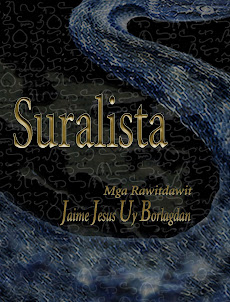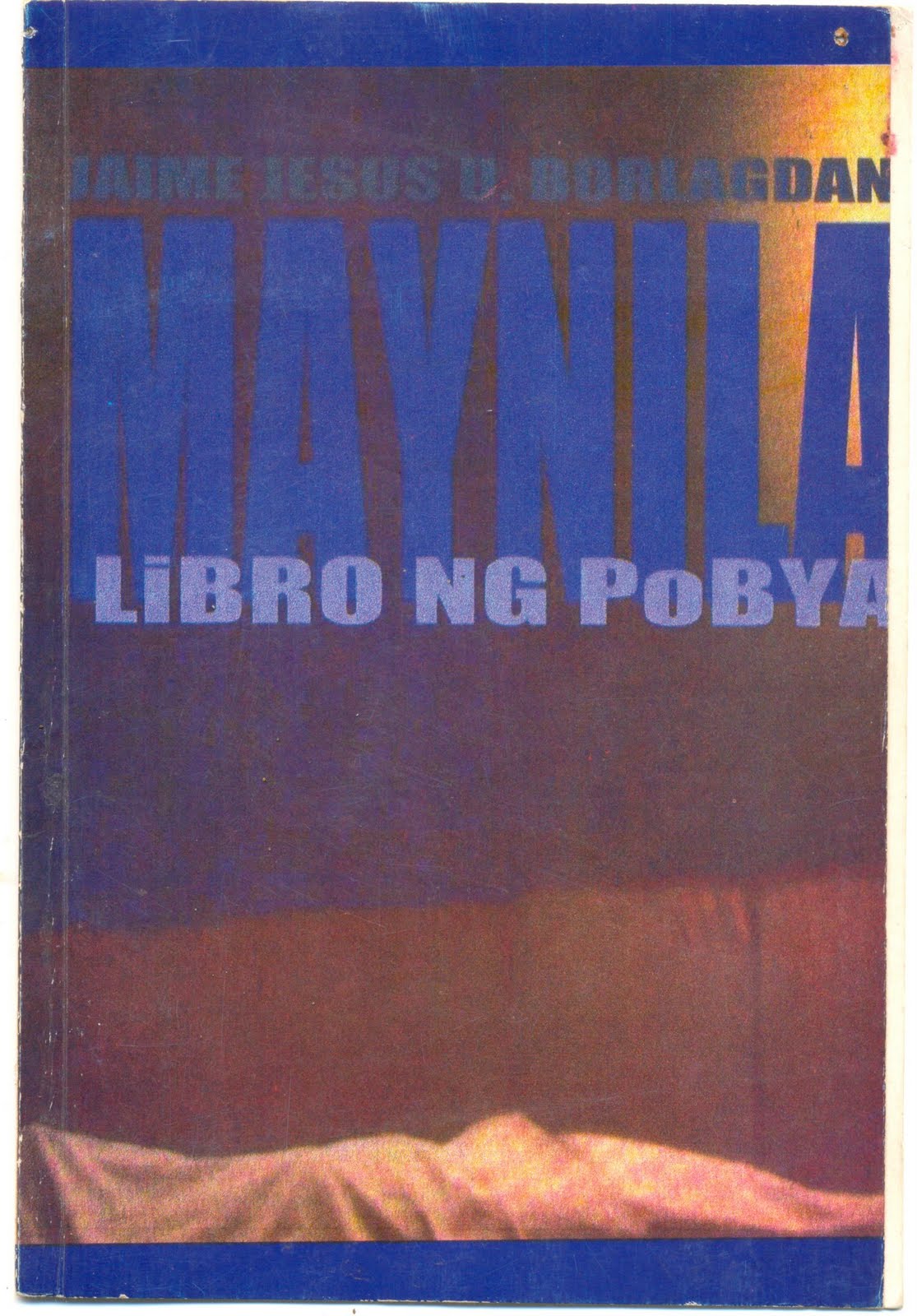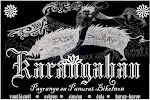Negros-full Moon
How long have I waned?
And took the fate of oceans
upon my hand.
I make tides faithful
to the shore, yet I am
without love, and one faith
guides my circles, that perhaps
a new night pure enough to unfurl
the virgin wraps of night-blooms
tilled by the violet fingers
of answerless waiting will wake
you up despite the tender cloth
clinging upon your breasts, the soft air
breathed by a garden nearby thru your
open window will choke your pink dreams
of castles hazy at the tip of cliffs,
your prince upon a silver horse galloping
upon the bog, and bring your eyes to me
white with craving, hanged on a fragile noose.
Reading Her Favorite Poem
I grip at the final odors of your memory
at first as if an infant desperate
to his suckle breast gorging
the fluid he has never seen
except perhaps if he has the stomach
to stop sucking and watch
what he is drinking. Feel.
You love that poem, so I read it
trying to know the language of your heart.
Only to be broken
in the end,
I’ve taken myself
to a place I can ‘t love, here where you are
more— separate
around you the structures crowd
like shell
the away-eyes you can ‘t tear
from a red sun sinking.
You shame my bleeding here
Upon your violet soil
Anywhere,
the nameless graves of your tears
hold the sky broken
on those silent pools,
sometimes an upturned lily floats
across the blue, shading the pebbles.
Meeting the many names you kept from the world
their faces carved upon your peaks
moveless even to fate,
I feel the molecules
of ceaseless air, crashing to the jaws
of grass, me.
I found, going on, a little
cottage about my person.
There, everything I became to you
archived like fossils, manuscripts of dead
words, bodies shrinking into dust.
This one resembled a daisy
most of its petals forgotten colors
a length of stem drowned on the soft water
through its own musk, its age wafts
crawling to a rod of sun.
Your unvisited church, Goddess! See!
I can ‘t bleed here.
Here you own every crying,
All tears carry your name.
Yes, you girl running down the hills
the green refuses my sole
I here can “t be somewhere
The violins of the sea laments from a distance
My fingers are forceless to weild a blade
against your demons
Swept by your shaking my bones
break like dandelions
I burry my ears to the sand
and I still hear you breaking
Here, your voice is every sound I make.
As the poem’ s period
offers exit
I look back to see you wipe the words
of the dirt I brought with my coming
You arrange the ripples on your ponds
comb every blade of your grass
You brush away my footprints to the breeze
the sun bleeds in your eyes.
As I lit pain between my lips
the smoke howls quietly in the night.
La Isla Dolores
1
Dolores, far fetched as water out of the humid
air of the weather that makes women loosen their buttons
to the breeze, with the lingering grip that bursts the swelling
of plants. Always for the pursuit for new body
pinning down the old sockets to the motherly arms
of death on the passionate soil, the waste that sickens the fallen pressure
of leaves into rot. These garden movements run through the blush
on your cheeks. A fountain, a pond or a birdbath of an old kiss
floating on the surface of memory, as I wrap the fog
in my chest, mindless of the stones acting their character
into a pile of numbness, except perhaps the isle of moss
which on their ancient skin a remote forest of touch.
And I sigh loud as the opening hinges of the early bud.
2
Dolores, your warmth walks with me
on the street everytime my feet falls
under the shade the leaves weave
The warmth that suddenly drives sweat
out of my pores, the water cupped from
the moveless lake inside the body
And these are the fluids riding the air with tiny stars
Because you are like the faucet behind the clouds
and Im putting myself now in a memory of a rain
that repeats the wet on my pillow
What are you made of but the bones of children
with little breaths. And I can fold you like a flower
in the womb of my fist. Until you are nothing
but scent. That the only way to forget
is to stare on where my feet falls creating so little sound
to avoid the sight of your flight from my head.
That she may find me among these distances
The summer beneath her skin
wakes sleeping gardens beneath mine.
Never will I be calm or waters be without ripples.
In grief are many poems about sunsets
but on her cheeks alone bleeding reds twice.
How will I be calm or have waters without ripples?
Notice my hands, her textures
are alive in all my fingers.
Never will aging sing in my tree houses!
Never will I be calm or waters be without ripples
or nights without pillows heavy with songs
of her name, her skin, and the summer beneath.
How can I remember her, when I have not forgotten.
I am empty with her, but without her
the world is filled with Chopin and drowned men.
The waters in our eyes does it just remind you
how the sea, to take the bruised body back yearns?
I am empty with her, but without her
I trace the bed at night for depths pressed by absent
stars.
And what relief is longing, when it reminds me
she is not here, but here is not with her
and where she is, is not with me, is lost
in the burden of arriving. For the world is heavy
with restraint and Imagination is a mascular horse.
In the unborn days we are times of rapid waters.
I am empty with her, but without her
I repeat her voice until the flute of my throat
is breaking, is telling of wide fields, of enormous skies.
The summer beneath her skin
awaken sleeping gardens beneath mine
never will I be calm or waters be without ripples.
(BECAUSE I CANNOT TOUCH HER MEMORY WITH FIRE)
Because I cannot touch her memory with fire
from the stalk of fragrant wanting, I consume
my own pale bones; its metal, like the taste
of soil, reminds me not to sleep at night,
and think of her, and her own wakefulness,
or dip my feet on the sheets, wet with moisture
sighed by the grass left by feeling, left
by its love.
Again, I claw the air in silence, with the same fingers
I hush the wind from the flowers.
If the night to her is empty,
it is because day has never forgotten to forget
her name.
But for me it is more than remembering, it is wanting
to be called by that name, beacause it is her.
It is her with the smell of flowers,
she has never smelled.
It is her skies filled with blue,
that to her it is love.
It is the ice in her skin that I have never touched,
but dreaded to press against my weakness.
And it is her that I don't have.
The tree rooted in imagination. Her fruits falling
on land that knows no feet.
What pain it causes me to think of her
not thinking of me. What more pain
to think about this in silence. In the dark
among everybody felled by the sickness
of sleep. Among all the radios shut off,
among all the syllables uttered in sleep,
among the movements under the sheets, she is
the echo starting from the white throat
of a cat before curling herself into fur.
She is the thought I remembered, and remembering it again
makes me sure it is her.
I cannot stop comparing her to herself,
because to herself alone she is comparable.
All I really want to say are these things,
because these are the things I can't tell her.
Because these words can't be anything to her
but the sky that dissolves even the reddest things
into blue.
September 30, 2000. sta. cruz.
From 15 Poems II
Posted by
Jai Jesus Uy Borlagdan
Monday, January 05, 2004







